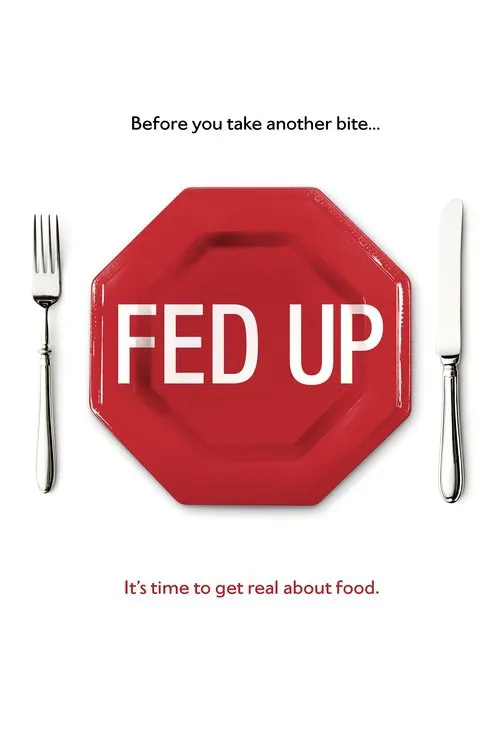Fed Up

Plot
Fed Up is a documentary film that aims to expose the misleading and deceptive practices of the food industry and its influence on the alarming rates of obesity and related health issues in the United States. The film is narrated by Katie Couric and features interviews with experts in the field of nutrition and health, personal stories of people struggling with weight and health issues, and analysis of the role of the food industry and government in perpetuating the problem. The documentary begins by highlighting the staggering statistics associated with the American eating habits. It reveals that more than one-third of the U.S. population is considered obese, a number that has tripled since 1970. This excess weight is not just a cosmetic issue, but also a major contributing factor to chronic diseases such as diabetes, heart disease, and certain types of cancer. The film attributes these alarming rates to a combination of factors, including the increasing prevalence of processed and high-calorie foods, the widespread use of additives and preservatives, and the corresponding decline in consumption of whole, nutrient-rich foods. The film delves into the history of the food industry's efforts to manipulate consumer perceptions and promote its products as healthy options. It highlights the role of the sugar industry, which has been actively working to downplay the risks associated with sugar consumption since the 1970s. The film also exposes the way in which the food industry uses its influence and lobbying power to sway government policies and regulations in its favor. One of the key arguments presented in the film is that the food industry has been using "confusing and misleading labeling" to make its products appear healthier than they actually are. The film points out that some foods are labeled as "heart-healthy" or "low-fat" when, in reality, they contain high amounts of added sugars, salt, or unhealthy fats. This tactic has led to a phenomenon known as "nutrition confusion," where consumers are left uncertain about what is truly healthy and what is not. The film also explores the role of government in perpetuating the problem. It highlights the way in which various government agencies, such as the Agriculture Department (USDA) and the Food and Drug Administration (FDA), have been influenced by the food industry's lobbying efforts. The USDA, for example, has been criticized for promoting agriculture that is heavily subsidized and dominated by large corporate interests, rather than prioritizing sustainable and locally produced foods. In addition to its exposé of the food industry and government, the film also shares personal stories of individuals who have struggled with weight and health issues. These stories highlight the human impact of the epidemic and emphasize the need for change. The film also features medical experts, researchers, and thought leaders in the field of nutrition and health, who offer insights and advice on how to navigate the complex food landscape and make healthier choices. One of the key recommendations made by the film is to adopt a whole-foods approach to eating, emphasizing the importance of fruits, vegetables, whole grains, lean proteins, and healthy fats. The film also promotes the idea of reading food labels carefully and avoiding foods that contain added sugars, artificial ingredients, and unhealthy fats. Furthermore, it suggests that everyone has the power to drive change and promote healthier food choices by supporting local farmers, advocating for better food policies, and holding corporations accountable for their actions. Overall, Fed Up presents a compelling case for why the epidemic of obesity and related health issues in the United States is a critical problem that requires immediate attention and action. By exposing the deceptive practices of the food industry and highlighting the need for systemic change, the film aims to empower consumers to take control of their health and well-being, and to support a movement towards a more sustainable and equitable food system.
Reviews
Zachary
The title is too sensational. "Fed Up" would have been a much better, more direct choice.
Paul
Blaming corporations entirely while portraying children as innocent victims is laughable. In the internet age, is information about healthy food and lifestyles really that inaccessible? The film completely ignores personal responsibility and self-control.
Molly
Low-fat often equals high-sugar. Essentially, almost any industrially produced food is packed with various additives, ensuring you crave more, turning the lean into the overweight, the overweight into the sick, and the sick into... well, you get the idea.
Anthony
After watching "Fed Up," the message is clear: avoid all processed foods and stick to cooking from scratch with whole ingredients. All those modified sugars, sugar-free, and zero-calorie products are just marketing ploys by food companies.
Recommendations




